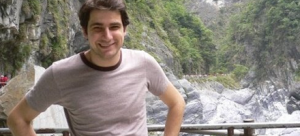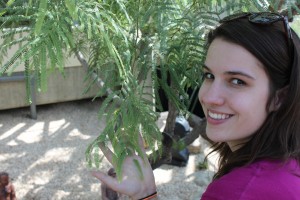The Mathematics and Science Teaching and Learning through Technology Project is a work of a team of UBC faculty members, undergraduate and graduate students from the Department of Curriculum and Pedagogy at the Faculty of Education. In addition, we have collaborated with the graduate and undergraduate students from the Faculty of Science at UBC, as well as an undergraduate student from India, who came to work with us through the support of MITACS: the Globalink Program. We have been very lucky to be supported by UBC Centre for Teaching, Learning and Technology, who helped us with the web site implementation. In addition, we collaborate with local teachers from the schools in Greater Vancouver Area of from other regions who help us with question design, testing and provide us feedback on effective implementation of these questions in the classroom.
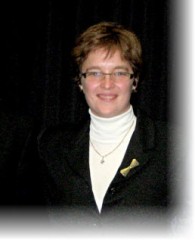 Dr. Marina Milner-Bolotin is an Assistant Professor at the Department of Curriculum and Pedagogy at the Faculty of Education at UBC. She is interested in exploring how modern technologies can change mathematics and science learning. At UBC she teachers undergraduate and graduate courses in science and mathematics education, supervises graduate students (Master’s and Ph.D. students), as well as student-teachers on a Practicum. She is actively involved in the BC Association of Physics Teachers, American Association of Physics Teachers and other professional and research organizations. Marina has been dreaming about designing such a resource for science and mathematics teachers for a long time and in the Fall of 2011 she invited Prof. Cynthia Nicol (see below) to apply together for UBC Teaching and Learning Enhancement Fund (TLEF) grant to support the project. Their TLEF application was successful and the preparation for the project began in the Spring of 2012.
Dr. Marina Milner-Bolotin is an Assistant Professor at the Department of Curriculum and Pedagogy at the Faculty of Education at UBC. She is interested in exploring how modern technologies can change mathematics and science learning. At UBC she teachers undergraduate and graduate courses in science and mathematics education, supervises graduate students (Master’s and Ph.D. students), as well as student-teachers on a Practicum. She is actively involved in the BC Association of Physics Teachers, American Association of Physics Teachers and other professional and research organizations. Marina has been dreaming about designing such a resource for science and mathematics teachers for a long time and in the Fall of 2011 she invited Prof. Cynthia Nicol (see below) to apply together for UBC Teaching and Learning Enhancement Fund (TLEF) grant to support the project. Their TLEF application was successful and the preparation for the project began in the Spring of 2012.
Graduate Students:
Davor Egersdorfer 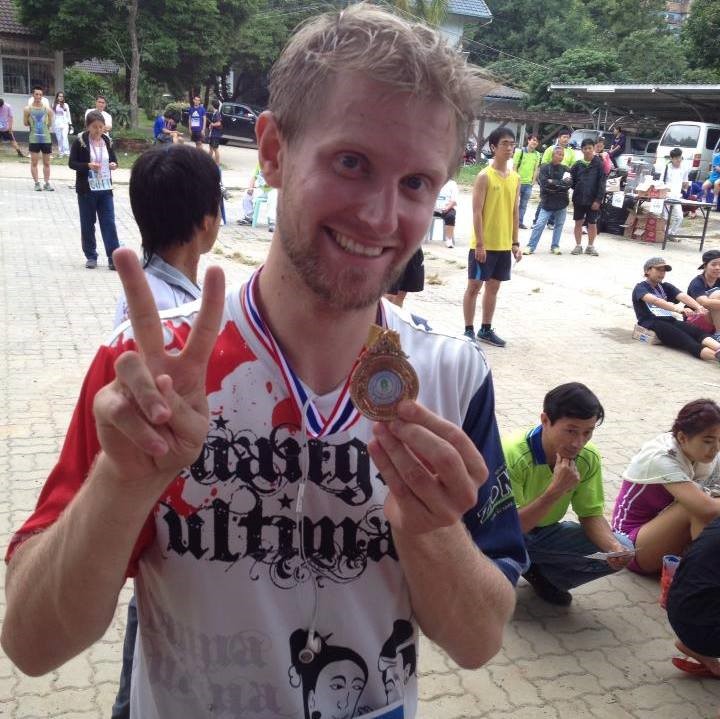 is a current graduate student at UBC doing his M.Ed. in Science Education. He is originally from former Yugoslavia, but grew up and spent most of his life in South Africa. It was there that he discovered his passion for Science and Mathematics and got his Bachelor of Science degree in Molecular and Cell Biology at the University of Cape Town. He discovered his love of teaching in Thailand and spent two years there teaching Mathematics and Science to elementary school children. Davor is interested in educational technology and how it relates to science education. He is also passionate about addressing gender inequality in science education and in engaging more female students to study science. In his free time Davor enjoys hiking, ultimate Frisbee and dancing the night away.
is a current graduate student at UBC doing his M.Ed. in Science Education. He is originally from former Yugoslavia, but grew up and spent most of his life in South Africa. It was there that he discovered his passion for Science and Mathematics and got his Bachelor of Science degree in Molecular and Cell Biology at the University of Cape Town. He discovered his love of teaching in Thailand and spent two years there teaching Mathematics and Science to elementary school children. Davor is interested in educational technology and how it relates to science education. He is also passionate about addressing gender inequality in science education and in engaging more female students to study science. In his free time Davor enjoys hiking, ultimate Frisbee and dancing the night away.
 Murugan Vinayagam is a current graduate student at UBC doing his M.Ed. in Mathematics Education. Murugan was born in India and earned his M.S. degree in applied mathematics from Western Carolina University. His research interests are in exploring high school mathematics teachers’ beliefs, experiences, and perceptions when integrating interactive technology supported lesson plans in their classrooms. Murugan likes developing interactive tools for teaching mathematics and he has been learning GeoGebra and other technologies used in mathematics teaching and learning. He enjoys bike rides and loves cycle tours and adventures.
Murugan Vinayagam is a current graduate student at UBC doing his M.Ed. in Mathematics Education. Murugan was born in India and earned his M.S. degree in applied mathematics from Western Carolina University. His research interests are in exploring high school mathematics teachers’ beliefs, experiences, and perceptions when integrating interactive technology supported lesson plans in their classrooms. Murugan likes developing interactive tools for teaching mathematics and he has been learning GeoGebra and other technologies used in mathematics teaching and learning. He enjoys bike rides and loves cycle tours and adventures.
Undergraduate Students (current content contributors):
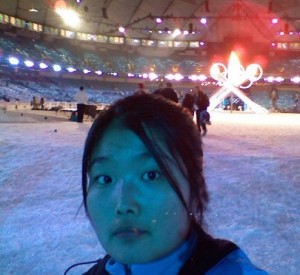 Michelle Moon was born in Korea. She has earned a B.Sc. degree in Mathematics and Life Sciences at UBC. She is currently pursuing her B.Ed. degree at UBC in Mathematics education in order to become a certified secondary mathematics teacher and to get certification in the International Baccalaureate Diploma Programme. She has been involved in the project since the fall of 2014. She designed biology conceptual questions and solutions.
Michelle Moon was born in Korea. She has earned a B.Sc. degree in Mathematics and Life Sciences at UBC. She is currently pursuing her B.Ed. degree at UBC in Mathematics education in order to become a certified secondary mathematics teacher and to get certification in the International Baccalaureate Diploma Programme. She has been involved in the project since the fall of 2014. She designed biology conceptual questions and solutions.
 Michael Chang was born in Korea. He has earned a B.Sc.degree in Mathematics education at UBC. He is currently pursuing his B.Ed. degree at UBC in Mathematics Education as well as in IB MYP Educator in order to become a BC certified secondary mathematics teacher and to be qualified to teach in the International Baccalaureate Middle Year Programme. He has been involved in the project since September, 2014. He has designed mathematics conceptual questions and solutions.
Michael Chang was born in Korea. He has earned a B.Sc.degree in Mathematics education at UBC. He is currently pursuing his B.Ed. degree at UBC in Mathematics Education as well as in IB MYP Educator in order to become a BC certified secondary mathematics teacher and to be qualified to teach in the International Baccalaureate Middle Year Programme. He has been involved in the project since September, 2014. He has designed mathematics conceptual questions and solutions.
Database and Website Designer:
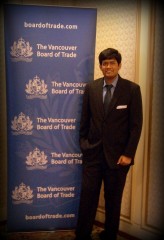 Satya Harish Appana was an undergraduate student in India at Birla Institute of Technology and Science,Pilani (one among top five Engineering Universities in India).He is currently pursuing his B.E(Hons) Computer Science Engineering and M.sc(Hons) Mathematics at BITS-PIlani. Harish was supported by a very prestigious MITACS Globalink Program scholarship to come to UBC for a 10 week stay in order to participate in a research project (May-July, 2012). In the summer of 2012, Harish collaborated with Marina, Kevin and Jeremy to envision the database and worked closely with Enej to design and implement it.
Satya Harish Appana was an undergraduate student in India at Birla Institute of Technology and Science,Pilani (one among top five Engineering Universities in India).He is currently pursuing his B.E(Hons) Computer Science Engineering and M.sc(Hons) Mathematics at BITS-PIlani. Harish was supported by a very prestigious MITACS Globalink Program scholarship to come to UBC for a 10 week stay in order to participate in a research project (May-July, 2012). In the summer of 2012, Harish collaborated with Marina, Kevin and Jeremy to envision the database and worked closely with Enej to design and implement it.
Technical Support Consultants:
Enej Bajgoric works at the Centre for Teaching, Learning and Technologies at UBC. Enej is an Applications Developers and he is a WordPress guru (the platform we are using for our project). Enej works on developing themes in Word Press that can be used by faculty and students at UBC. Enej is very fun to work with! Together with Novak, Enej has been extremely helpful in the project implementation. Enej’s experience, creativity and patience have been invaluable to us.
Robert (Bob) Hapke is a member of the technical support staff in the Department of Curriculum and Pedagogy at UBC. Bob helps to make sure that the all projects at the department have full technical support. Bob’s contribution to the project is very important.
 Novak Rogic works at the Centre for Teaching, Learning and Technologies at UBC. Novak is a Web Strategist, leading the web projects that emphasize content sharing and republishing. Putting it simply, Novak is a UBC guru of how to use web tools to promote learning. Novak has been contributing to the technical side of the project from the very beginning, helping us make our dreams come true. To learn more about Novak, check his blog: http://blogs.ubc.ca/novak/
Novak Rogic works at the Centre for Teaching, Learning and Technologies at UBC. Novak is a Web Strategist, leading the web projects that emphasize content sharing and republishing. Putting it simply, Novak is a UBC guru of how to use web tools to promote learning. Novak has been contributing to the technical side of the project from the very beginning, helping us make our dreams come true. To learn more about Novak, check his blog: http://blogs.ubc.ca/novak/
Graphic Designer:
 Marina Bolotina lives in Israel. She is a retired mathematics and science teacher who has a wealth of experience and passion for science and mathematics teaching and learning. She is a mother and a role model to Marina Milner-Bolotin. Marina Bolotina loves languages (she speaks Russian, Ukrainian, Hebrew and English). She also loves learning new things, especially when technology is concerned. She is also an avid photographer and a very talented artist. Nowadays Marina uses digital media to express herself. In recent years she learned Adobe Photoshop and she uses it to create her photo compositions. She kindly agreed to support the graphic design of our web site as a volunteer. (Don’t we all go to our parents when we need help?) In addition, she provides feedback on the educational materials posted here. In the photo two Marinas are shown together.
Marina Bolotina lives in Israel. She is a retired mathematics and science teacher who has a wealth of experience and passion for science and mathematics teaching and learning. She is a mother and a role model to Marina Milner-Bolotin. Marina Bolotina loves languages (she speaks Russian, Ukrainian, Hebrew and English). She also loves learning new things, especially when technology is concerned. She is also an avid photographer and a very talented artist. Nowadays Marina uses digital media to express herself. In recent years she learned Adobe Photoshop and she uses it to create her photo compositions. She kindly agreed to support the graphic design of our web site as a volunteer. (Don’t we all go to our parents when we need help?) In addition, she provides feedback on the educational materials posted here. In the photo two Marinas are shown together.
Past collaborators and question contributors:
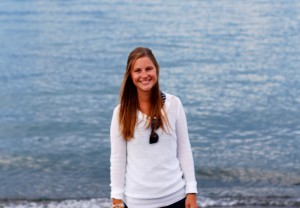 Heather Fisher started her Masters of Arts Program at the Department of Curriculum and Pedagogy at UBC in September 2012. She graduated from McMaster University in 2010 with a double major in Biology & Psychology. In 2011 Heather completed a second degree at McMaster University in Political Science. These two degrees allowed Heather to bridge her passion for education, which straddles the line between science and social science. Blending these two disciplines allows Heather to explore the complexities of education in more depth. Heather’s research interests are in higher education, specifically how we support students transitioning into university, both in the classroom and outside the classroom. In her spare time, Heather loves to explore the city of Vancouver and take advantage of the lack of snow to pursue her sometimes-love-sometimes-hate relationship with running.
Heather Fisher started her Masters of Arts Program at the Department of Curriculum and Pedagogy at UBC in September 2012. She graduated from McMaster University in 2010 with a double major in Biology & Psychology. In 2011 Heather completed a second degree at McMaster University in Political Science. These two degrees allowed Heather to bridge her passion for education, which straddles the line between science and social science. Blending these two disciplines allows Heather to explore the complexities of education in more depth. Heather’s research interests are in higher education, specifically how we support students transitioning into university, both in the classroom and outside the classroom. In her spare time, Heather loves to explore the city of Vancouver and take advantage of the lack of snow to pursue her sometimes-love-sometimes-hate relationship with running.
Alexandra MacDonald began her Master of Arts in the Department of Curriculum and Pedagogy at UBC in the fall of 2012. She graduated from St Francis Xavier University with a double major in Physics and Math in 2011. With a background in these disciplines, Alex is excited to share her vision of an improved science education for both high school and undergraduate students. Moving from a small town Nova Scotia university to one of Canada’s largest universities has been an eye-opening experience, and Alex is excited to explore the opportunities Vancouver and UBC provide.
Rachael Bates began her Master of Arts in the Department of Curriculum and Pedagogy at UBC in the fall of 2013. She is interested in experiential environmental and in outdoor education. She is currently contributing environmentally oriented conceptual questions at K-8 level to the database. She enjoys the outdoors and navigating Vancouver by bicycle.
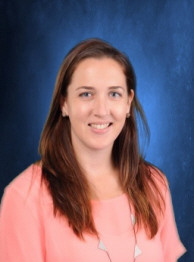 Kate Anthony began her Masters of Education in the Department of Curriculum and Pedagogy at UBC in the fall of 2012, and has been working with the MSTLTT team since the summer of 2013. Kate completed her BSc and BEd (primary/junior divisions and intermediate science additional qualifications) at Queen’s University in Kingston, Ontario. In addition to pursuing her M.Ed. on a part-time basis, Kate is currently a grade 6 science specialist teacher at Collingwood School in West Vancouver, BC. She previously taught grade 3 at Collingwood School. In the MSTLTT research project, she has specifically focused on developing elementary science question sets. When Kate’s not busy teaching, working with the MSTLTT team, or attending her master’s classes, she can be found doing something active in the beautiful city of Vancouver.
Kate Anthony began her Masters of Education in the Department of Curriculum and Pedagogy at UBC in the fall of 2012, and has been working with the MSTLTT team since the summer of 2013. Kate completed her BSc and BEd (primary/junior divisions and intermediate science additional qualifications) at Queen’s University in Kingston, Ontario. In addition to pursuing her M.Ed. on a part-time basis, Kate is currently a grade 6 science specialist teacher at Collingwood School in West Vancouver, BC. She previously taught grade 3 at Collingwood School. In the MSTLTT research project, she has specifically focused on developing elementary science question sets. When Kate’s not busy teaching, working with the MSTLTT team, or attending her master’s classes, she can be found doing something active in the beautiful city of Vancouver.
Prof. Jeongho (Daniel) Cha is an Associate professor of science education at Daegu University in South Korea. Daniel has been involved in science teaching and in preparing future science teaching for more than a decade. Daniel came to UBC during the 2011 school year for his sabbatical to collaborate with us on implementing educational technologies in science teacher education. During this time Daniel took an active part in the life of the Department and our research group: Daniel’s contributions to our research projects were very important. We collaborated on implementing clickers (electronic response systems) with pre-service elementary teachers. We (Daniel, Kshamta and Marina) developed a Rubric for evaluating the pedagogical effectiveness of Multiple-Choice Science Questions and presented our research at the American Educational Research Association Conference that took place in April 2012 in Vancouver. To download our poster click here: AERA 2012 Milner_3. Daniel will continue interacting with our team and we are looking forward to his next visit!
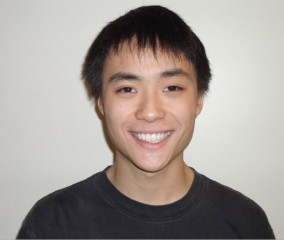 Jeremy Ko is an undergraduate student at the UBC Faculty of Science. Jeremy is a graduate of The International Baccalaureate Program (IB) at Port Moody Secondary School. Jeremy has been involved in the project since the summer of 2012. Jeremy has designed more than 700 conceptual questions and solutions that have been uploaded into the database, and continues to actively contribute to the resource. He is also a technical guru, and takes care of the web site. Jeremy’s work on the project has been supported by the UBC Teaching and Learning Enhancement Fund (2012-2014).
Jeremy Ko is an undergraduate student at the UBC Faculty of Science. Jeremy is a graduate of The International Baccalaureate Program (IB) at Port Moody Secondary School. Jeremy has been involved in the project since the summer of 2012. Jeremy has designed more than 700 conceptual questions and solutions that have been uploaded into the database, and continues to actively contribute to the resource. He is also a technical guru, and takes care of the web site. Jeremy’s work on the project has been supported by the UBC Teaching and Learning Enhancement Fund (2012-2014).
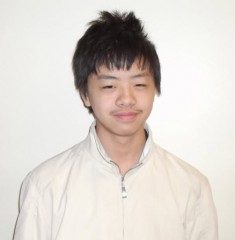 Kevin Yin is an undergraduate student at the UBC Faculty of Science. Kevin is a graduate of UBC Transition Program. Kevin was involved in the project during the Summer and Fall semesters of 2012. Together with Jeremy Ko, Kevin designed more than 200 conceptual questions and solutions that have been uploaded into the database. Kevin’s work on the project was supported by the UBC Teaching and Learning Enhancement Fund (2012-2014).
Kevin Yin is an undergraduate student at the UBC Faculty of Science. Kevin is a graduate of UBC Transition Program. Kevin was involved in the project during the Summer and Fall semesters of 2012. Together with Jeremy Ko, Kevin designed more than 200 conceptual questions and solutions that have been uploaded into the database. Kevin’s work on the project was supported by the UBC Teaching and Learning Enhancement Fund (2012-2014).
Prof. Cynthia Nicol was a collaborator on the project in 2012-2013. Her information can be found here.
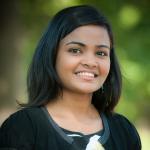 Kshamta Hunter is a graduate student at the Department of Curriculum and Pedagogy and is a Student Advisor at the UBC Sustainability Initiative. Kshamta is an experienced science teacher and she is interested in investigating how sustainability can be implemented into science curriculum. Kshamta is also interested in exploring new ways of using technology to promote science learning. Kshamta collaborated on the project during 2011-2012 academic year. She was one of the co-presenters of the AERA 2013 paper (see above).
Kshamta Hunter is a graduate student at the Department of Curriculum and Pedagogy and is a Student Advisor at the UBC Sustainability Initiative. Kshamta is an experienced science teacher and she is interested in investigating how sustainability can be implemented into science curriculum. Kshamta is also interested in exploring new ways of using technology to promote science learning. Kshamta collaborated on the project during 2011-2012 academic year. She was one of the co-presenters of the AERA 2013 paper (see above).
Jordan Heath is an undergraduate student at the UBC Faculty of Science. Jordan is pursuing a concurrent B.Sc. and B.Ed. degree, taking teacher education and physics courses concurrently. Jordan joined the project for the summer of 2013, and designed many exciting physics and astronomy questions. Jordan contributed to the project in many ways, bringing excellent suggestions on how to incorporate computer simulations, YouTube videos, animations and GIFs into the question sets. Jordan’s work on the project was supported by the UBC Teaching and Learning Enhancement Fund (2012-2014).
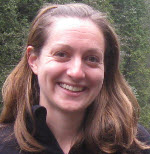
Elizabeth Love is a science teacher with many years of teaching experience at international schools all over the world. She was a graduate student in the Department of Curriculum and Pedagogy, working under the supervision of Dr. Marina Milner-Bolotin and Dr. Samson Nashon, in 2011-2012. Elizabeth is interested in exploring how science can be taught more effectively at the elementary level. She is especially interested in merging art and science in elementary classroom. During the 2011-2012 academic year, Elizabeth was collaborating with Dr. Marina Milner-Bolotin on designing multiple-choice science questions that were used in a science methods course for future elementary teachers.
